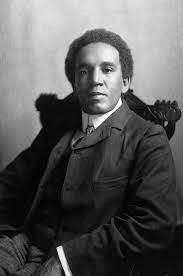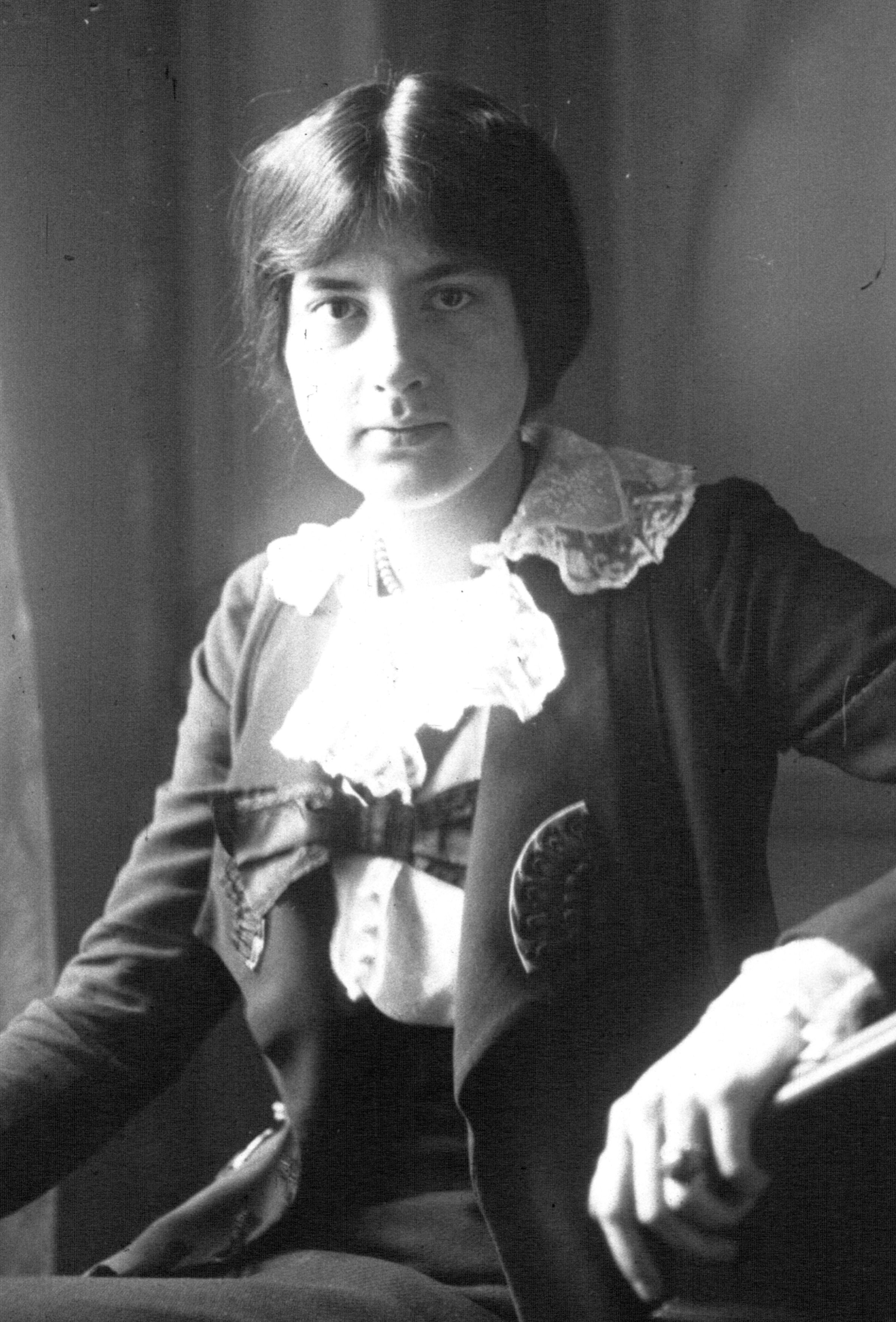This Week in Classical Music: August 15, 2022.Coleridge-Taylor and Lili Boulanger.Two composers, whose music has probably been performed more often in the last two years than during all the years since it has been written, were born this week: Samuel Coleridge-Taylor,a composer of Afro-British origins, and Lili Boulanger, a French female composer.Coleridge-Taylor was born in London on August 15th of 1875.His mother was English, his father – a descendant of freed American slaves who settled in Sierra Leone.His father returned to Africa before Samuel was born, and his mother named him Samuel Coleridge Taylor after the Romantic poet Samuel Taylor Coleridge.They lived with his mother’s father in a family that loved and played music, and it was recognized early on that Samuel was musically talented.Later, he was helped by Edward Elgar, who recommended him to the “Three Choirs Festival,” a music festival which rotates among three cathedrals, Worcester, Gloucester, and Hereford and takes its name from the choirs of these cathedrals (the festival is still going strong today).In 1898-1900 Coleridge-Taylor composed three cantatas under the name of The Song of Hiawatha.They became very popular, especially the first part, Hiawatha's Wedding Feast.In 1904 Coleridge-Taylor went on a tour of the United State and was received in the White House by Theodore Roosevelt.He toured the US and Canada in 1906 and the US again in 1910, visiting New York, Boston, Detroit, St-Louis, and other major cities.For many years Coleridge-Taylor was the conductor of the Handel Society of London.He died September 1st of 1912 of pneumonia, at just 37 years old.Here’s Coleridge-Taylor’s Hiawatha's Wedding Feast.Malcolm Sargent conducts the Royal Choral Society and the Philharmonia Orchestra.While it’s not clear to us why Coleridge-Taylor is sometimes called "the African Mahler" we sure are glad that his piece is not considered a cultural appropriation.
Lili Boulanger’s life was even shorter than Coleridge-Taylor’s: she died of tuberculosis at the age of 24.Boulanger, like Coleridge-Taylor, was also born (on August 21st of 1893) into a musical family, but of a much higher social status: her father, Ernest Boulanger, was a noted pianist, composer and conductor who counted Ambroise Thomas, Charles Gounod and Gabriel Fauré among his friends.Lili’s mother was born in St.-Petersburg, probably an illegitimate daughter of a Russian aristocrat; she studied singing in the St.-Petersburg Conservatory, moved to Paris at the age of 20, and soon became Ernest’s wife (he was then 62, she was 21).When Lili was two years old, Fauré discovered that she had perfect pitch.Also at the age of two, Lili got ill with pneumonia, which compromised her immune system for the rest of her short life.She attended some classes at the Paris Conservatoire (her frail health didn’t allow her to attend them all), and in 1913 won the coveted Prix de Rome for composition with the cantata Faust et Hélène, the first woman to do so (her father won it in 1835 but her talented sister Nadia who would become one of the most influential music teachers of the 20th century, failed to do so, coming in second; Nadia did win several First prizes, though).Lili went to Rome but return to Paris soon after as WWI broke out.She went back in 1916 for several months; in Rome she started working on a five-act opera La princesse Maleine and several other pieces but again returned to Paris, this time because her health was deteriorating.Her last piece, Pie Jesu for soprano, string quartet, harp and organ, was dedicated to her sister Nadia.Lile died on March 15, 1918 (Claude Debussy died ten days later).Here’s Pie Jesu, performed by the soprano Isabelle Sabrié, Eric Lebrun (organ), Francis Pierre (harp), and the strings.
Coleridge-Taylor and Lili Boulanger, 2022
This Week in Classical Music: August 15, 2022. Coleridge-Taylor and Lili Boulanger. Two composers, whose music has probably been performed more often in the last two years than during all the years since it has been written, were born this week: Samuel Coleridge-Taylor, a composer of Afro-British origins, and Lili Boulanger, a French female composer. Coleridge-Taylor was born in London on August 15th of 1875. His mother was English, his father – a descendant of freed American slaves who settled in Sierra Leone. His father returned to Africa before Samuel was born, and his mother named him Samuel Coleridge Taylor after the Romantic poet Samuel Taylor Coleridge. They lived with his mother’s father in a family that loved and played music, and it was recognized early on that Samuel was musically talented. Later, he was helped by Edward Elgar, who recommended him to the “Three Choirs Festival,” a music festival which rotates among three cathedrals, Worcester, Gloucester, and Hereford and takes its name from the choirs of these cathedrals (the festival is still going strong today). In 1898-1900 Coleridge-Taylor composed three cantatas under the name of The Song of Hiawatha. They became very popular, especially the first part, Hiawatha's Wedding Feast. In 1904 Coleridge-Taylor went on a tour of the United State and was received in the White House by Theodore Roosevelt. He toured the US and Canada in 1906 and the US again in 1910, visiting New York, Boston, Detroit, St-Louis, and other major cities. For many years Coleridge-Taylor was the conductor of the Handel Society of London. He died September 1st of 1912 of pneumonia, at just 37 years old. Here’s Coleridge-Taylor’s Hiawatha's Wedding Feast. Malcolm Sargent conducts the Royal Choral Society and the Philharmonia Orchestra. While it’s not clear to us why Coleridge-Taylor is sometimes called "the African Mahler" we sure are glad that his piece is not considered a cultural appropriation.
during all the years since it has been written, were born this week: Samuel Coleridge-Taylor, a composer of Afro-British origins, and Lili Boulanger, a French female composer. Coleridge-Taylor was born in London on August 15th of 1875. His mother was English, his father – a descendant of freed American slaves who settled in Sierra Leone. His father returned to Africa before Samuel was born, and his mother named him Samuel Coleridge Taylor after the Romantic poet Samuel Taylor Coleridge. They lived with his mother’s father in a family that loved and played music, and it was recognized early on that Samuel was musically talented. Later, he was helped by Edward Elgar, who recommended him to the “Three Choirs Festival,” a music festival which rotates among three cathedrals, Worcester, Gloucester, and Hereford and takes its name from the choirs of these cathedrals (the festival is still going strong today). In 1898-1900 Coleridge-Taylor composed three cantatas under the name of The Song of Hiawatha. They became very popular, especially the first part, Hiawatha's Wedding Feast. In 1904 Coleridge-Taylor went on a tour of the United State and was received in the White House by Theodore Roosevelt. He toured the US and Canada in 1906 and the US again in 1910, visiting New York, Boston, Detroit, St-Louis, and other major cities. For many years Coleridge-Taylor was the conductor of the Handel Society of London. He died September 1st of 1912 of pneumonia, at just 37 years old. Here’s Coleridge-Taylor’s Hiawatha's Wedding Feast. Malcolm Sargent conducts the Royal Choral Society and the Philharmonia Orchestra. While it’s not clear to us why Coleridge-Taylor is sometimes called "the African Mahler" we sure are glad that his piece is not considered a cultural appropriation.
Lili Boulanger’s life was even shorter than Coleridge-Taylor’s: she died of tuberculosis at the age of 24. Boulanger, like Coleridge-Taylor, was also born (on August 21st of 1893) into a musical family, but of a much higher social status: her father, Ernest Boulanger, was a noted pianist, composer and conductor who counted Ambroise Thomas, Charles Gounod and Gabriel Fauré among his friends. Lili’s mother was born in St.-Petersburg, probably an illegitimate daughter of a Russian aristocrat; she studied singing in the St.-Petersburg Conservatory, moved to Paris at the age of 20, and soon became Ernest’s wife (he was then 62, she was 21). When Lili was two years old, Fauré discovered that she had perfect pitch. Also at the age of two, Lili got ill with pneumonia, which compromised her immune system for the rest of her short life. She attended some classes at the Paris Conservatoire (her frail health didn’t allow her to attend them all), and in 1913 won the coveted Prix de Rome for composition with the cantata Faust et Hélène, the first woman to do so (her father won it in 1835 but her talented sister Nadia who would become one of the most influential music teachers of the 20th century, failed to do so, coming in second; Nadia did win several First prizes, though). Lili went to Rome but return to Paris soon after as WWI broke out. She went back in 1916 for several months; in Rome she started working on a five-act opera La princesse Maleine and several other pieces but again returned to Paris, this time because her health was deteriorating. Her last piece, Pie Jesu for soprano, string quartet, harp and organ, was dedicated to her sister Nadia. Lile died on March 15, 1918 (Claude Debussy died ten days later). Here’s Pie Jesu, performed by the soprano Isabelle Sabrié, Eric Lebrun (organ), Francis Pierre (harp), and the strings.